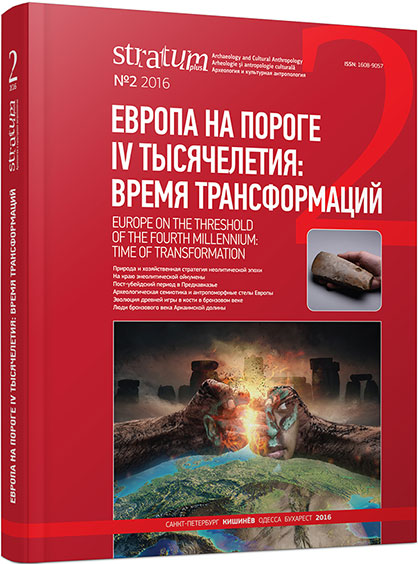Проблемные ситуации «пост-убейдского периода» в Предкавказье (4500—3500 лет до н. э.)
Challenging Situations of the “Post-Ubeid Period” in the Ciscaucasia (4500—3500 BC)
Author(s): Sergej N. KorenevskijSubject(s): History, Archaeology, Cultural history, Ancient World
Published by: Издательский дом Stratum, Университет «Высшая антропологическая школа»
Keywords: Near East; Ciscaucasia; Eneolithic; Early Bronze Age; migration; climate dynamics; funerary rite; barrow; elite; weapons
Summary/Abstract: An attempt is made in the article to examine the dynamics of cultural development dated to the beginning of the Copper and Early Bronze Age in the Northern Caucasus (second half of 5th — first half of 4th millennia BC). This period in the Near East archaeological literature is designated as the “Post-Ubeid period” and the beginning of the Uruk period. In the first part of the article the cultural-chronological situation is analyzed which is related to the radiocarbon dating of main archaeological sites in the Near East and their relation to those of the North Caucasus. Further, the author examines some questions are examined connected to the dynamics of cultural evolution in the Ciscaucasia just before the Maykop period and characterizes peculiarities of spatial and chronological localization of typological variants within the Maykop-Novosvobodnaya cultural community. He also discusses general characteristics of the metal production, military affairs, cults and beliefs, as well as emergence of barrow funerary rite in the North Caucasus region.
Journal: Stratum plus. Археология и культурная антропология
- Issue Year: 2016
- Issue No: 2
- Page Range: 37-62
- Page Count: 26
- Language: Russian
- Content File-PDF

